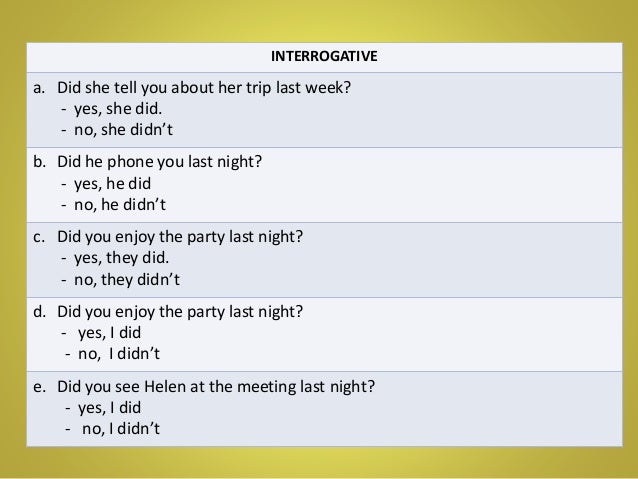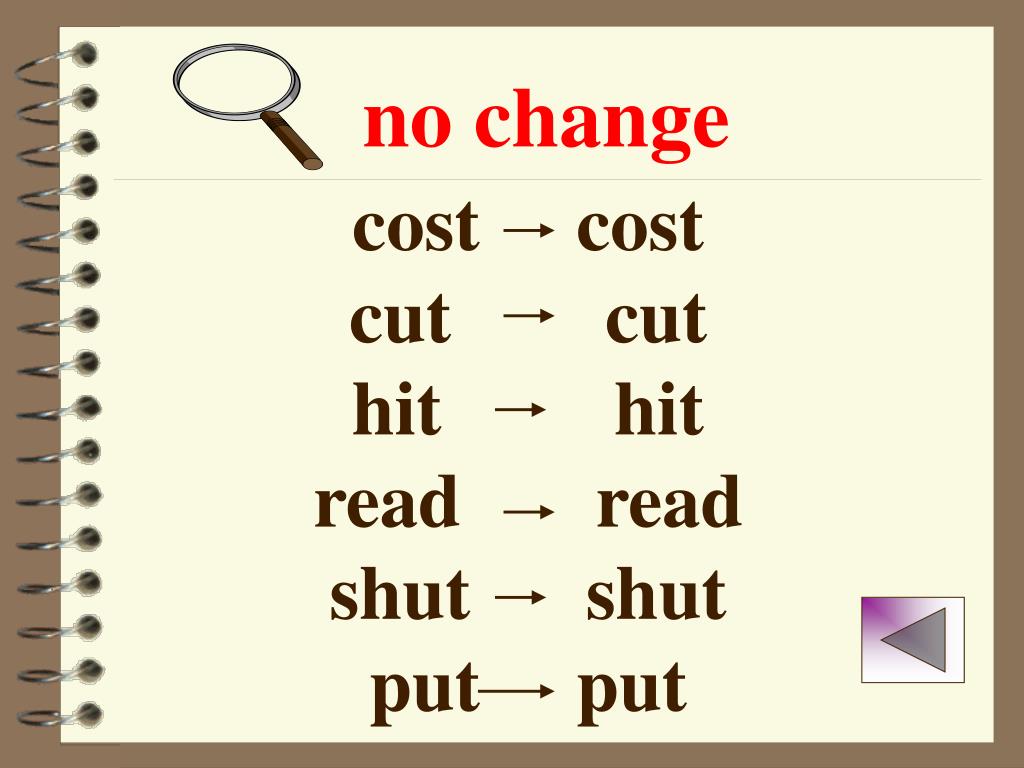

The problem is that many verbs do not follow this rule. Some verbs are irregular in BrE but regular in AmE.Most English verbs take -ed for the past tense or past participle. First of all, there is a difference between British and American English. There are many English verbs (such as cut, put, cast, etc.) whose past tense and past participle are the same as present first-person. You can avoid confusion regarding tense if you say, for instance: I shut up when somebody did something. (4) The regular rule for the application of -ed is more likely to be overgeneralized to irregular forms such as hit, shut, and put than to other irregular forms.

Like any other modern language, English is constantly changing and transforming. It probably sounds peculiar because it is the same as present tense. Definition of a Verb: A verb is a word that expresses an action (such as eat), an event (such as happen) or a state (such as exist). Why do some irregular verbs have more than one past form? Should we learn both? Perfect tenses present perfect have shut has shut past perfectiAlso known as: pluperfect had shut had shut future perfect will have shut will have. And misunderstand has the same forms as understand: misunderstand - misunderstood - misunderstood. Let + object + be+ v3 (or You are asked/ ordered/ commanded+to + same sentenc Shut the door. For example, overhear is the same as hear: overhear - overheard - overheard.

To form the simple future tense, we use the modal verb ‘will’ + the bare infinitive of the verb (without to). We left out rarely used words you will hardly hear today like shoe - shod - shod.īesides, if we add a-, be-, for-, in-, inter-, mis-, off-, out-, over-, pre-, re-, un-, under-, up-, with- to the infinitive of an irregular verb, its past forms will stay the same. Verbs takes different forms when talking about the future tense in English, and we may tend to use several different sentence constructions. English verbs have five basic forms: the base form, the - S form, the - ing form, the past form, and the past participle form. The past participle of shut down is shut down.

The present participle of shut down is shutting down. The third-person singular simple present indicative form of shut down is shuts down. Are these really all existing irregular verbs? The past tense of shut down is also shut down. George washington bridge shut down today q50 tune package can you drive with wrench light on maxpreps top 100 football players am i a selfish partner landscape supply new braunfels systems of equations review answer key mast cell tumor removal surgery recovery.


 0 kommentar(er)
0 kommentar(er)
